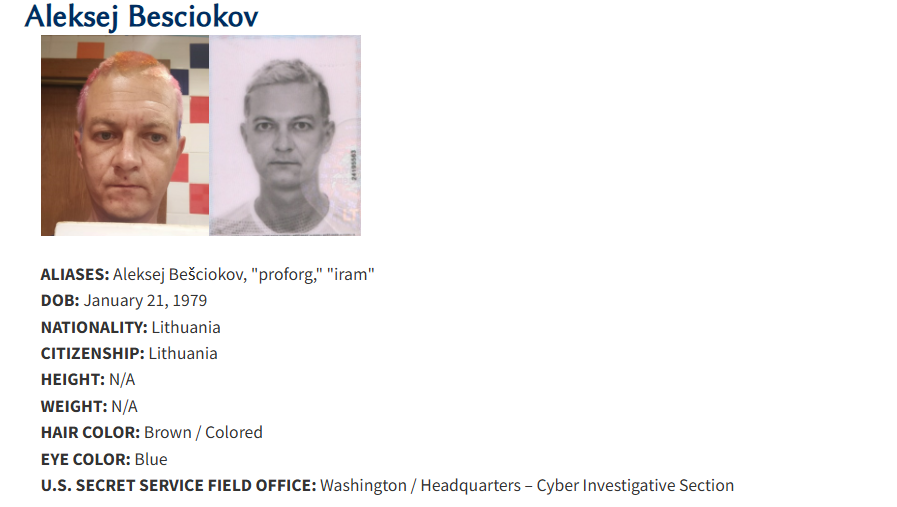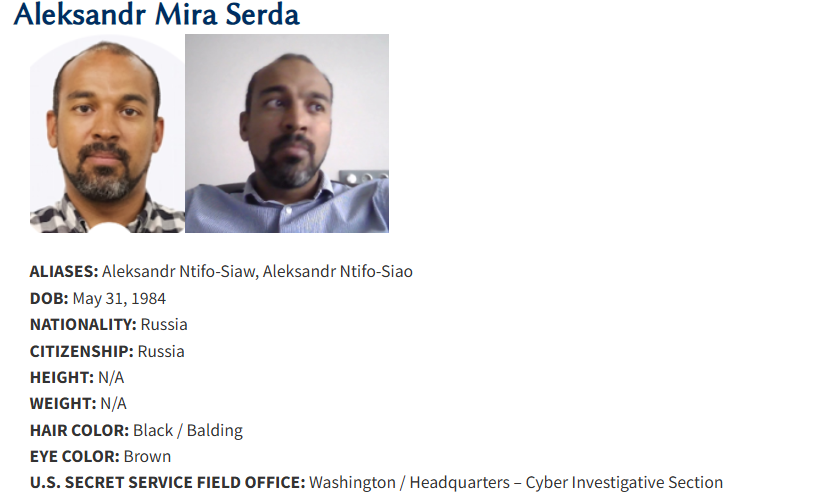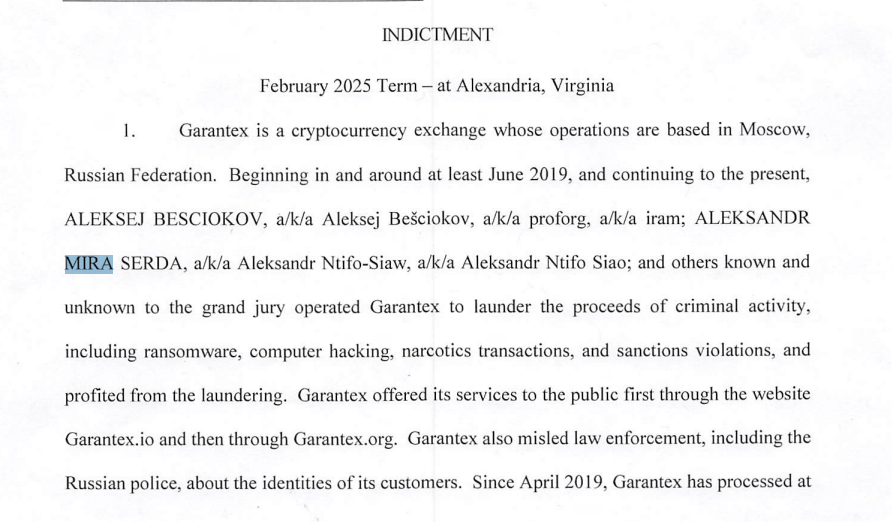
Garantex Crypto Exchange Operators Sanctioned in the US for Money Laundering
- Two Garantex operators were sanctioned in the U.S. for conspiracy to commit money laundering.
- Court documents say one of the individuals identified and continued to allow two accounts he believed to be from Lazarus Group.
- The maximum penalty for this charge is 20 years in prison, and, combined with other charges for one of the individuals, it rises to 45.
The operators of the notorious Russian cryptocurrency exchange Garantex face money laundering charges in the United States for their involvement in the exchange’s activities as the company was dismantled following an international law enforcement operation.
After announcing the takedown of the official Garantex website, the U.S. Department of Justice (DoJ) released a statement revealing the names of the two charged operators.
Aleksej Besciokov, 46, aka “proforg” and “iram,” a Lithuanian national and Russian resident, was charged with conspiracy to commit money laundering, conspiracy to violate sanctions, and conspiracy to operate an unlicensed money transmission business. He was an administrator of Garantex.
Aleksandr Mira Serda, 40, aka “Aleksandr Ntifo-Siaw” or “Aleksandr Ntifo Siao,” a Russian citizen residing in the United Arab Emirates, was charged with conspiracy to commit money laundering. He was a co-owner of both Garantex and Fintech Corporation LLC, the entity operating Garantex.Academy.
Conspiracy to commit money laundering carries a maximum penalty of 20 years in prison. For Mira Serda, a maximum of 25 years in jail is added for the other two charges above.
Last week, an international coalition led by the U.S., Germany, and Finland seized Garantex's domains and servers, effectively halting its online operations. U.S. law enforcement froze approximately $28 million worth of cryptocurrency tied to the exchange, with assistance from blockchain analytics firm Elliptic and stablecoin issuer Tether.
In 2022, the Moscow-based cryptocurrency exchange was accused of knowingly enabling money laundering for ransomware groups such as Conti and Black Basta and serving as a hub for illicit transactions tied to darknet markets like Hydra.
According to blockchain intelligence from Elliptic, the platform processed over $60 billion in cryptocurrency transactions after its sanctioning, contributing to a total of more than $96 billion in transactions.
Many accounts registered on Garantex bore pseudonyms tied to criminal activities, such as “drug,” “hacker,” “taliban,” “cashout,” “cleancoins,” and “God,” enabling unmonitored illegal activities through the platform.
Among its clientele is believed to be North Korea’s Lazarus Group, which orchestrated the record-breaking $1.5 billion Bybit heist last month. The exchange also catered to Russian oligarchs evading international sanctions and sanctions evasion services like TGR Group.














